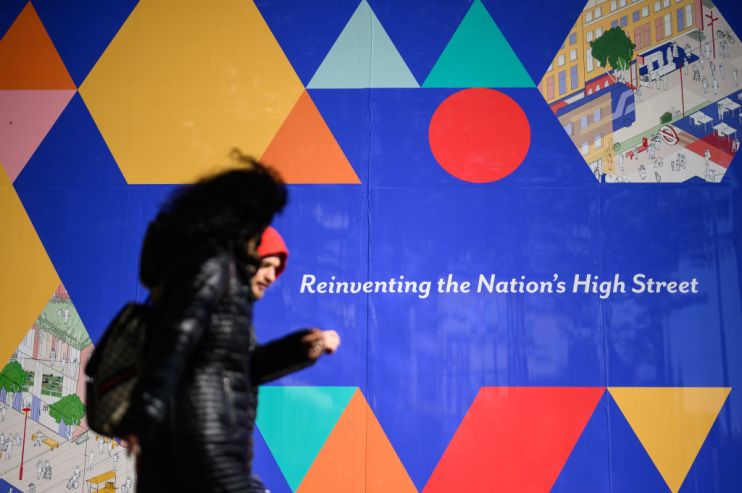Credit disagreement: the future of the high street depends on how we handle retailers’ Covid debt

It is a commonplace that the pandemic has devastated the economy. The prospects of recovery may be rosier than we had dared imagine, but businesses have suffered grievously, especially those for whom in-person custom, footfall, is vital. One sector which has been hit particularly hard is independent retail.
The death of the high street has been forecast for years. Experts have been bandying impenetrable phrases like “locational obsolescence” and “property-specific factors” for nearly a decade at least, and it has certainly been an issue which has been on the radar of politicians since before the pandemic.
Last week, however, a report was published by retail veteran Bill Grimsey, the guru of all things high street, which pointed to one particular issue, a looming debt crisis for small independent retailers.
Grimsey knows whereof he speaks. His career has taken in Tesco, Iceland and Wickes, and it was back in 2013 that he published the first “Grimsey Review”, entitled An Alternative Future for the High Street. He remains at the leading edge of efforts to revive and reimagine the high street as a viable economic entity with social and cultural value, and his latest report, as we creep towards the effective end of lockdown, is timely.
The headline conclusion is that, while many independent retailers have become more keenly appreciated during the pandemic, many have been borrowing money to stay afloat. The debt stands at a collective £1.7bn – four times what retailers owed a year ago. Grimsey warms of a “tsunami” of closures this autumn as repayments become due.
Much of this debt comes from government-backed Bounce Back Loans, and a Treasury spokesman was quick to respond to the report by stressing that these are loans, not gifts, and were offered on that basis. “They may not be the right answer for all businesses”, the spokesman added.
Grimsey’s solution is simple but, it must be said, effective: the government should write off these loans for otherwise-viable small businesses. £1.7bn is a lot of money for the retailers now facing repayment, but it would be a small proportion of the £66bn the government has spent on business relief during the pandemic.
The narrow question of debt is separate from the broader picture of high-street rejuvenation. Grimsey’s thoughtful vision for a recovery, which puts high streets and independent retailers at the heart of economically sustainable communities, is an attractive one. The focus, he said, must be on “people, partnerships and communities” in order to unlock the continued potential of our high streets.
In this he may well be right. He also points to the action of the French government in preparing a programme of debt relief for its own retail sector. Given the scale of the Covid-19 crisis, it may seem sensible to prolong the Treasury’s policy of financial largesse and declare that the Bounce Back Loans will not be recovered. It would certainly be a quick win in a part of the economy on which the Conservative Party has often relied. Rishi Sunak, apart from a dig at foreign aid, does not yet seem to be in the mood for counting pennies.
It seems obvious that we should do all we can to allow viable businesses to survive and thrive. If a retailer has come this far, surely, weathered everything that the coronavirus can currently offer, it is senseless to see it go to the wall this autumn or winter as we move towards freedom.
A recovery, however, cannot be built on false premises.
We need our high streets to survive but the foundations on which they rest must be absolutely solid. Irrespective of the economic recovery, we are in for a hard transition from an open-handed Treasury willing to countenance lavish spending to a government run on more traditional Conservative lines. We have almost forgotten that there is no such thing as government money, only taxpayers’ money taken from them by the state.
A deferral of the looming debts would certainly seem sensible. The government is easily able to absorb a delay in recovering a sum of less than £2 billion. But we need to be more sure-footed know more about how our retail sector is evolving, what it will look like and how it will function as part of the wider economy in the 2020s and beyond, before we wave goodbye to the money.
The government is in an extremely strong position and can afford to be generous, so let us declare a debt holiday for those businesses. But let us not write the cash off completely. There may come a time when it is needed, and if policy is shaped correctly, we can create a retail sector which is able to buttress its own success by redeeming the debt. Think of it less as paying it back, than paying it forward.
